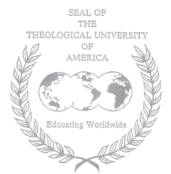


The Theological University of America began in September of 1987 to provide computer assisted distance learning Christian education. At the time, the idea of computer assisted distance learning education was hardly a recognized possibility. Most of the computer technologies that are taken for granted today were completely unknown in 1987. The desktop was relatively new, a giant step forward from the main frames that required large areas of space for operaton.
Desk top computing in 1987 was largely word processing with innovative efforts to break out of that restraint. The development of windows technology opened enormous capabilities that adapted well to the success of computer assisted distance learning education. Although the capabilities were improving, the idea of computer assisted distance learning education was still looked upon with skepticism both as to its practicality and educational legitimacy.
The Theological University of America was the first school affiliated with the Church of Christ and one of the first American universities to adopt computer assisted distance learning education as its only means of providing superior post secondary education. After many years of persistence, the values of computer assisted distance learning education began to reshape the philosophy of education to the extent that, today, most, if not all, major universities in America have self containing computer assisted distance learning educational divisions to serve the needs of their students.
Progress did not stop with computer assisted distance learning educational opportunties. Another idea whose time to come was slow to be accepted was the granting of university credit based on learning experience in venues outside a university classroom. Only a very small number of accredited schools coming out of the 1940's offered the opportunity to earn degrees based on education and experience achieved apart from the classrooms of the school which would award the degree.
The Theological University of America began its program of credit for legitimate learning experiences outside a university classroom from its beginning. Gradually, the idea of credit for legitimate experience began to find a place in the philosophy of education, so much so, that today, there are accredited universities which award degrees based solely on legitimate experiences that validate awarding a degree at the level the student seeks.
In the years to come, with the advance of technology and changing demographics, the unimaginable in education today will be common place later as progress continues to develop the possibilities of the human mind.